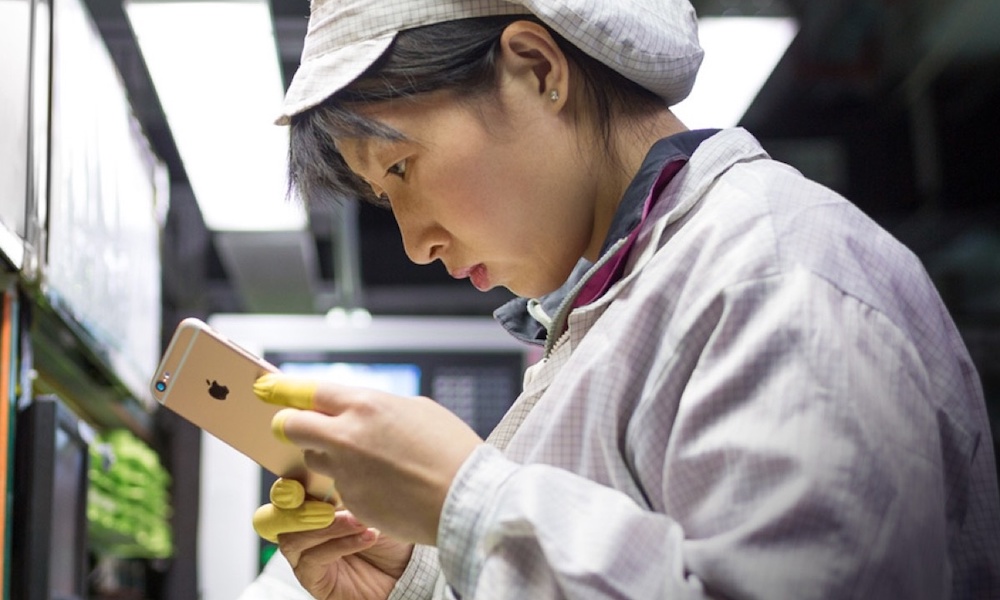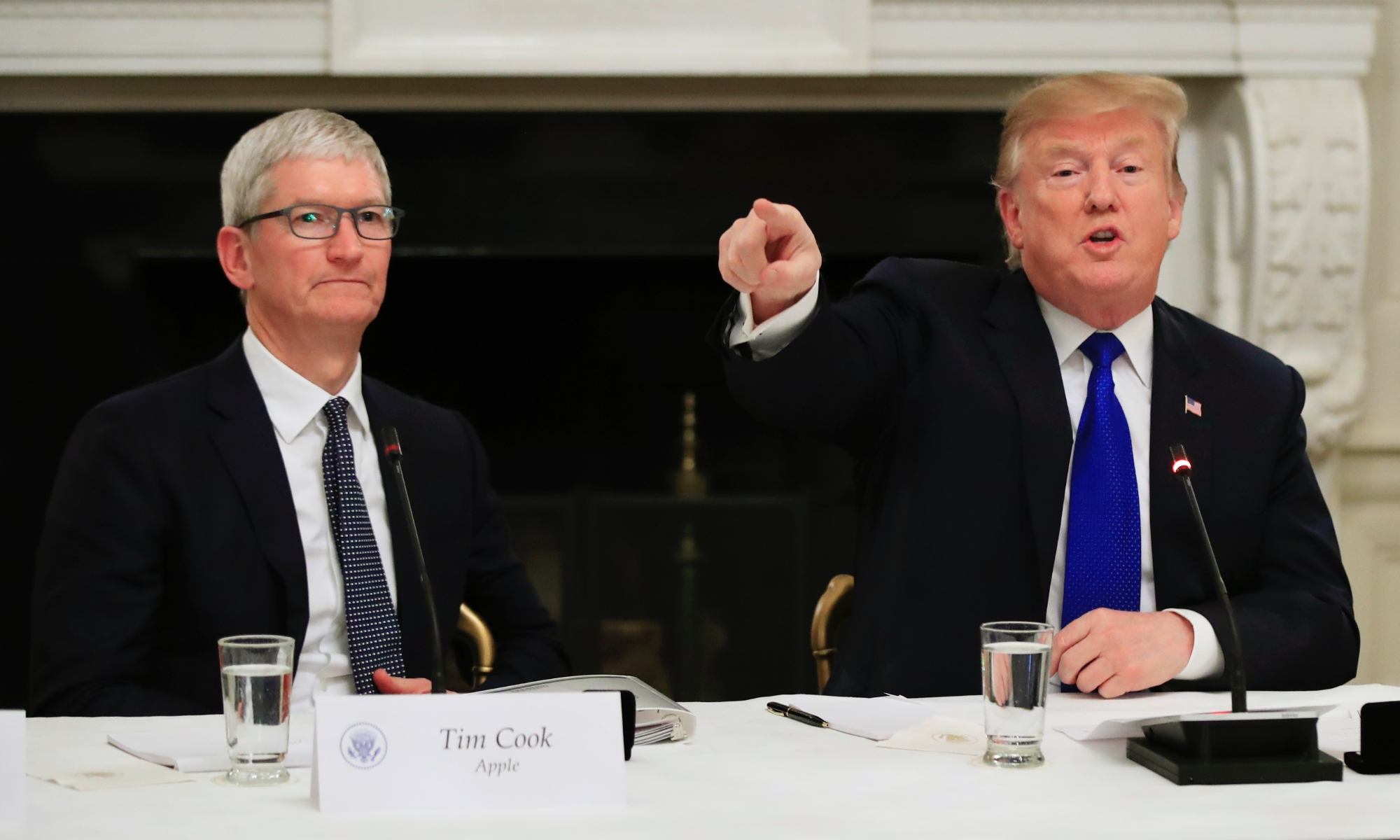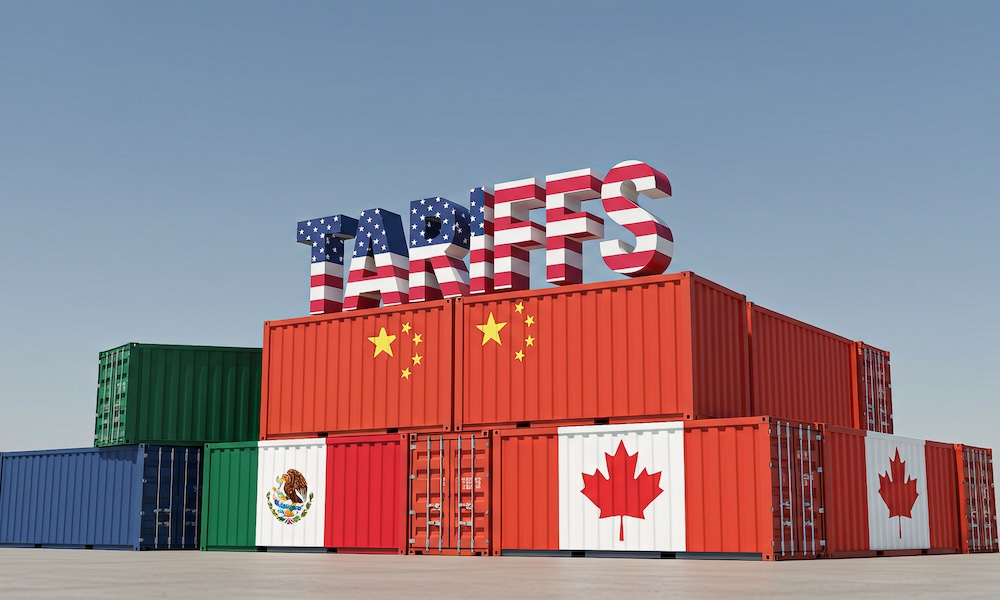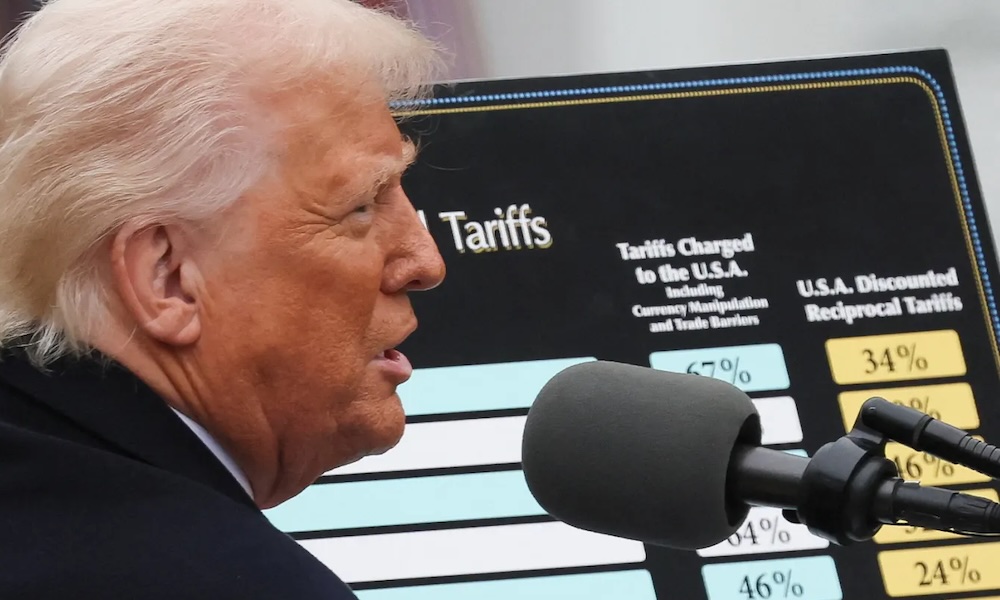US Tariffs Could Drive Up iPhone Prices Everywhere
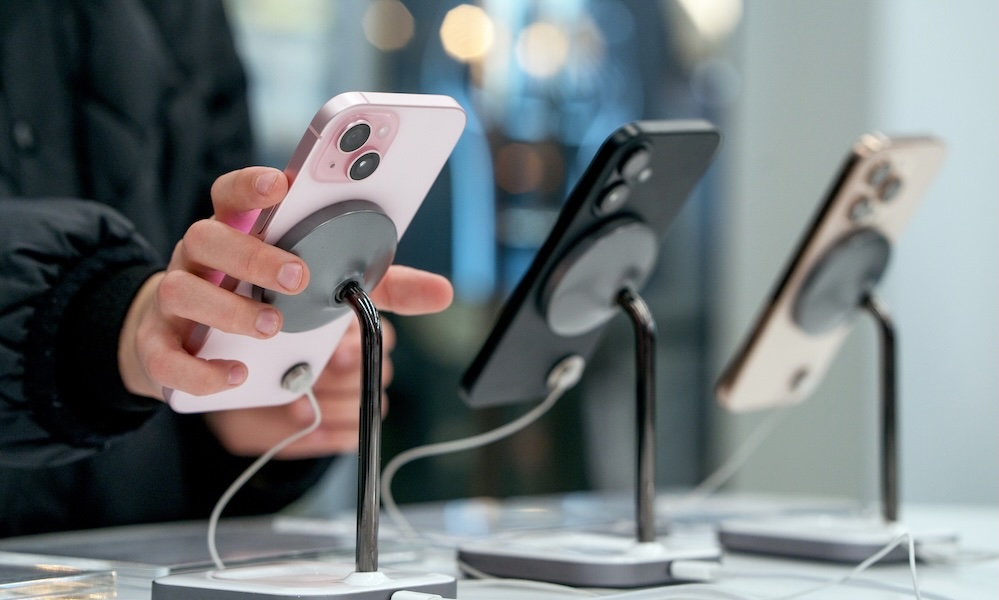 8th / Adobe Stock
8th / Adobe Stock
Toggle Dark Mode
Last week, President Donald Trump threatened to hit Apple with a 25% tariff if it didn’t start making iPhones in the US. Specifically, Trump said the government would impose a tariff on all smartphones imported into the US from other countries, meaning the only way Apple could avoid those tariffs would be by manufacturing iPhones for the US in the US.
Trump’s public announcement explicitly mentioned the iPhone, but when he was asked later, the President said that it would also affect “Samsung any anybody who makes that product […] otherwise it wouldn’t be fair.”
Although Trump “absolutely” believes the iPhone can be made in the US, nearly every other analyst on the planet says that’s a pipe dream. The most idealistic view is that even if Apple could get iPhone manufacturing up and running stateside, the resulting iPhones would cost twice as much — and that’s the per-unit manufacturing costs, not the sunken costs of actually building massive new facilities in the US and rearranging its entire supply chain. It also assumes that Apple wouldn’t have to pay tariffs on iPhone components, many of which include rare earth minerals that can only be sourced in China.
Needless to say, analyst Ming-Chi Kuo was on point when he said it’s much cheaper for Apple to pay the 25% tariffs. However, the bigger question remains whether Apple will eat those costs or pass them on to consumers in the form of higher iPhone prices.
If Apple does decide to raise the price of the iPhone 17 lineup — and it’s reportedly mulling price hikes for this year — such increases may not be limited to the models sold in the United States. Even though the tariffs only apply to iPhones imported into the US, Apple faces a couple of unique challenges that would likely result in iPhone 17 price increases worldwide.
For one thing, Apple is reportedly loathe to mention that any price hikes are due to tariffs. Some of that is just Apple’s corporate style, but it’s also a bit gun shy about upsetting the mercurial US President, who came down hard on Amazon when news leaked that it might break out tariff charges in its product listings. A personal call to Jeff Bezos stopped that idea dead in its tracks, but not before the White House publicly pilloried the company for committing “a hostile and political act.” When Walmart started talking about price increases due to tariffs, Trump publicly chastised it for not eating them, insisting that they should never be passed on to “valued customers.”
Apple is unlikely to want to end up in Trump’s crosshairs in a similar way, so it’s going to avoid any mention of tariffs — even though anyone who is paying attention will know precisely what’s going on. If it wants to be as oblique as possible, it can’t just raise iPhone 17 prices in the United States. If the iPhone 17 goes up in price, it’s likely to go up in price everywhere.
Still, global price increases offer another benefit that’s much more significant than merely avoiding the discussion of tariffs. Apple almost certainly doesn’t want its customers to encounter the sticker shock of a 25% price increase, but it also wants to eat as much of those costs as it can without affecting its bottom line. Instead of charging 20–25% more for iPhones sold in the United States, it can raise prices globally by 5–10% to offset the tariff costs.
This is precisely what investment firm Morgan Stanley believes Apple will do. In addition to agreeing with every other analyst that it makes more sense for Apple to pay the tariffs, the firm told investors that it believes Apple will raise prices by around 4–6% worldwide to help cover the costs of importing iPhones into the US.
In other words, iPhone buyers in other countries will effectively be paying US tariffs. In that sense, Trump’s fever dream of foreign countries paying tariffs may actually turn out to be true — at least in Apple’s case.
While this is merely educated speculation on Morgan Stanley’s part, it’s a reasonable assumption based on how Apple rolls and the stakes in this particular game. However, this also assumes that Trump’s threatened tariffs come into effect.
After all, the US President has been waffling more than a Belgian breakfast cafe on his tariff threats. He’s retreated on tariffs so often that Financial Times columnist Robert Armstrong recently called it the “TACO” theory, short for “Trump Always Chickens Out.” The President is understandably miffed at the suggestion, which could lead him to double down on his tariffs and be more consistent in the future. Still, based on his past performance, it’s hard to say if he’ll even follow through on his iPhone tariff threat, and even if the ink dries on an executive order, it could easily be rescinded a few days later — just like most other tariffs imposed by the Trump Administration.
There’s also the wrinkle that the US Court of International Trade has ruled that Trump overstepped his authority in using the 1977 International Emergency Economic Powers Act (IEEPA) to impose many of his tariffs. For now, the Trump Administration has been granted an administrative stay on the enforcement of that ruling while an appellate court sorts it out, but if the lower court’s decision is upheld, it could limit Trump’s ability to carry out his threat against the iPhone.
The court decision only impacted tariffs implanted under IEEPA — mainly the sweeping retaliatory tariffs applied to all goods and services from foreign countries — but many specific tariffs, such as those on steel and aluminum, were passed under different rules. A specific levy on smartphones could similarly come under a different aspect of Presidential authority, but it’s unclear right now because no such tariff has been enacted.


